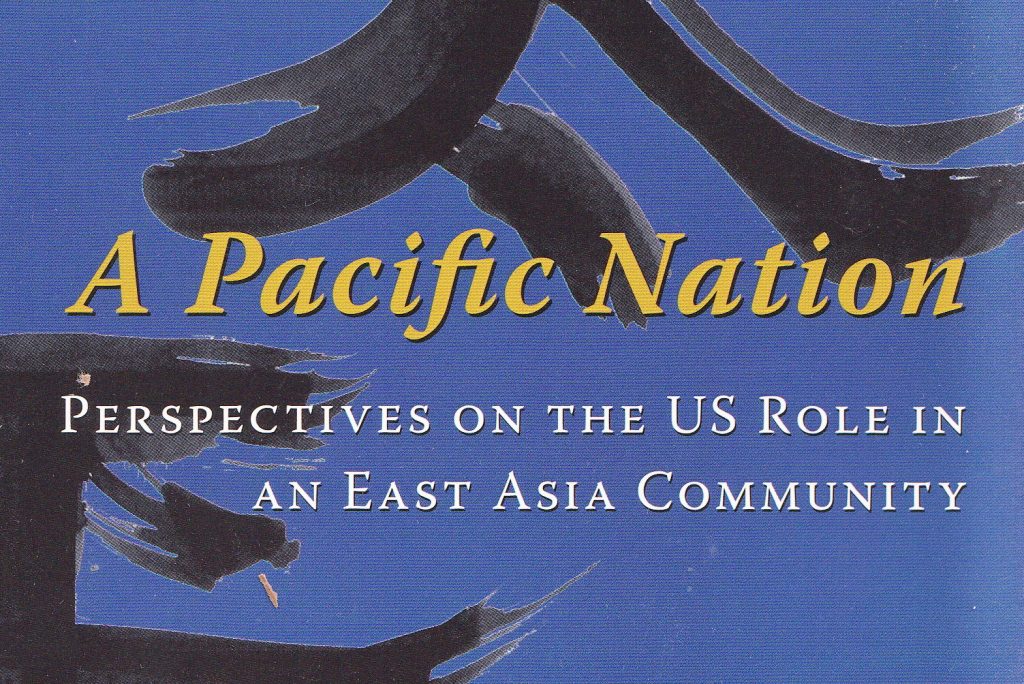THE IMPACT OF CHANGING US POLICY ON THE EMERGING EAST ASIA COMMUNITY
2009–2011
The 2008, US elections marked the culmination of a historic political shift in the United States and ushered in dramatic changes in US foreign policy. Now, with new political leadership, the United States is in the process of adjusting the tone and content of its foreign policy and reconceptualizing its approach to Asia.
In light of these changes, the research project “Regional Community Building and the Global Agenda: The Impact of Changing US Policy on the Emerging East Asia Community,” coordinated as part of the Asia Pacific Agenda Project (APAP), explores shifts in the US role in the region under new political leadership and what impact this will have on East Asia community building and regional cooperation in key areas where East Asia is increasingly striving to work together. The Obama Administration has struck a different tone towards Asia—President Obama has made much of his childhood years living in Indonesia as well as Hawaii and Secretary of State Clinton chose to pay her first official overseas visit to East Asia. Despite these tonal differences, the new administration’s substantive policy toward East Asia is not yet clearly articulated.
The United States continues to play a critical role in the power dynamics of East Asia, and its cooperation is essential in dealing with many of the cross-border challenges in the region. Therefore, it is critical for East Asians to better understand US policy and explore new ways of cooperating with the United States and of engaging it in discussion on the shape of the emerging East Asia community. Also, East Asian leaders should better articulate how they wish to see the United States involved in the region’s emerging architecture, and what level of US participation is desirable and appropriate. In this context, the project focuses on the following themes: (1) the new US approach to Asia, (2) trends in US policy toward East Asia community building, (3) US involvement in East Asia community building efforts, (4) East Asian perspectives on the US role in East Asia, and (5) new opportunities for regional cooperation with the US in East Asia.
Participants met at the 15th APAP Forum in 2009 in Seoul and at a workshop in 2010 in Honolulu. As a result of this project, A Pacific Nation: Perspectives on the US Role in an East Asia Community was published in 2011.
PROJECT TEAM
Project Leaders
TADASHI YAMAMOTO, President, Japan Center for International Exchange (JCIE)
MARK BORTHWICK, Executive Director, US Asia Pacific Council, East West Center, Honolulu
Authors
YANG DANZHI, Assistant Research Fellow, Institute of Asian and Pacific Studies, Chinese Academy of Social Sciences
JAMES GANNON, Executive Director, JCIE/USA
HAN INTAEK, Senior Research Fellow, Jeju Peace Institute
JOEY LONG SHI RUEY, Assistant Professor, S. Rajaratnam School of International Studies, Nanyang Technological University
NOEL MORADA, Research Director, Asia Pacific Centre for the Responsibility to Protect, School of Political Science and International Studies, University of Queensland, Australia; Professor of Political Science, Department of Political Science, College of Social Sciences and Philosophy, University of the Philippines, Diliman
AMY SEARIGHT, Senior Advisor, Stonebridge International; Memorial Assistant Professor of Political Science and International Affairs, George Washington University
TAKASHI TERADA, Professor of International Relations, Organization for Asian Studies, Waseda University, Tokyo

